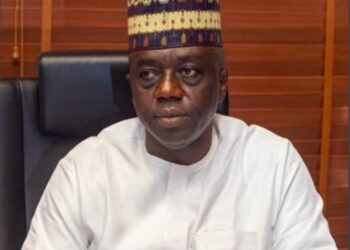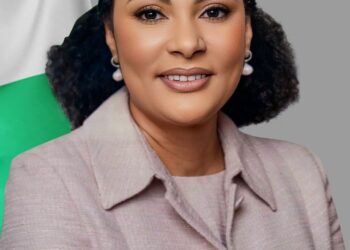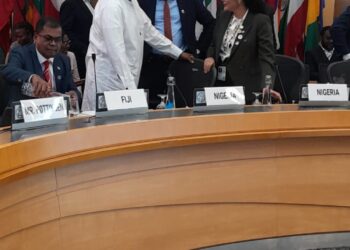AFRICA’S TIME IS NOW: BUILDING GLOBAL PROSPERITY THROUGH ENTREPRENEURSHIP
By Dr. Doris Uzoka-Anite, CFA
“The world’s next billion-dollar enterprises are already taking root on African soil. Come. See. Build with us.”
Across boardrooms, innovation hubs, and policy circles, one truth has become increasingly undeniable: entrepreneurship is the engine of modern prosperity. From Silicon Valley to Shenzhen, Bangalore to Lagos, it is entrepreneurial ingenuity that drives economic transformation, unlocks human potential, and redefines nations’ futures.
Yet while the global innovation map is familiar, a new frontier is rapidly emerging — Africa. And at its heart, Nigeria is leading the charge.
At the Legatum Center for Development and Entrepreneurship at MIT, I recently had the privilege of addressing global investors, policymakers, and innovators on this very topic: Innovation in Global Markets – Prosperity Through Entrepreneurship. I left more convinced than ever that Africa’s moment is not a distant aspiration; it is here, it is now, and it is powered by an entrepreneurial spirit as vast as our potential.
Our demographic advantage — over 220 million Nigerians, with 60% under the age of 25 — represents not just a number, but a seismic opportunity. Young, dynamic, digitally fluent Nigerians are already reshaping sectors from fintech to agritech. Success stories such as Flutterwave, now valued at over $3 billion, and Paystack, acquired by Stripe for $200 million, are proof that African innovation is globally viable, scalable, and investable.
In 2022 alone, Nigerian startups raised more venture capital than the rest of West Africa combined. These are not isolated triumphs; they are signals. Signals that Nigeria is open for business. Signals that African entrepreneurs are not waiting for handouts — they are building, scaling, and thriving.
But entrepreneurship does not happen in a vacuum. Innovation requires ecosystems — supportive environments where policy, regulation, capital, education, and infrastructure converge to enable ideas to flourish. As Mariana Mazzucato reminds us, innovation is not just about ideas; it is about ecosystems.
Yet as we build these ecosystems, we must confront hard truths. Despite the excitement around African entrepreneurship, there remains a significant misfit between available capital and the sectors that truly reflect our real economy. Too much of the funding today flows narrowly into high-growth tech ventures aimed at unicorn valuations. Too little reaches agriculture, processing, fashion, trade — the industries where the majority of Africans live, work, and create.
This misallocation is not just an economic oversight — it is a structural risk. As I noted at the Legatum Centre, we cannot eat artificial intelligence. Even the architects of AI must eat. If our investment models continue to overlook the foundational sectors that sustain life — food systems, manufacturing, community-based enterprises — we will build economies detached from the needs of real people.
We must also rethink how we judge entrepreneurial potential. Too often, the current models favour those who fit narrow expectations — those who pitch with flashy energy, polished accents, or perfect certainty. But real entrepreneurship, especially in emerging markets, is messy. It is probabilistic, not deterministic. Some of the best entrepreneurs are soft-spoken, operate in local languages, and are solving deeply local problems.
If we restrict opportunity to only those who conform to imported templates, we will miss out on the vast ingenuity present across Africa — in our markets, our farms, our informal sectors. We must deliberately develop new pipelines of entrepreneurs, expand how we recognise potential, and create funding models that are as diverse as the markets we seek to serve.
Celebrating success is important — but so too is normalising failure. In mature ecosystems, entrepreneurs who fail are not banished; they are funded again, having learned valuable lessons. In our societies, we must build a culture that embraces iteration, resilience, and second chances.
Nigeria is acting. Through initiatives like the Nigeria Startup Act, our Digital Economy Policy (2020–2030), strategic funding instruments such as the Bank of Industry and Development Bank of Nigeria, and our leadership within the African Continental Free Trade Area (AfCFTA), we are creating an environment where broader types of entrepreneurship can thrive.
But we cannot do it alone. We need global capital that is patient, intentional, and impact-driven. We need investors who understand that true inclusive prosperity comes not only from scaling a handful of tech giants, but from empowering millions of SMEs across diverse sectors.
This demands alternative financing mechanisms — ones that prioritise stability, resilience, and widespread job creation over short-term returns. It requires fund managers willing to invest in food systems, manufacturing, retail, healthcare, education — the lifeblood sectors of society. It calls for a new generation of investors who are as committed to building as they are to profiting.
Africa’s entrepreneurial journey will not be without challenges. But it is challenges that have historically given rise to the greatest innovations. If we create the right ecosystems — and recalibrate our investment priorities — African entrepreneurs will respond, not just with local solutions, but with global leadership.
To the global investor community, my invitation remains simple: Come. See. Build with us.
The world’s next billion-dollar enterprises, groundbreaking technologies, and prosperity-driving ecosystems are already taking root on African soil. Together, we can shape a future defined not by exclusion, but by inclusion; not by extraction, but by empowerment.
Africa’s time is now. Let us build it — together.
Dr. Doris Uzoka-Anite is Nigeria’s Minister of State for Finance.








